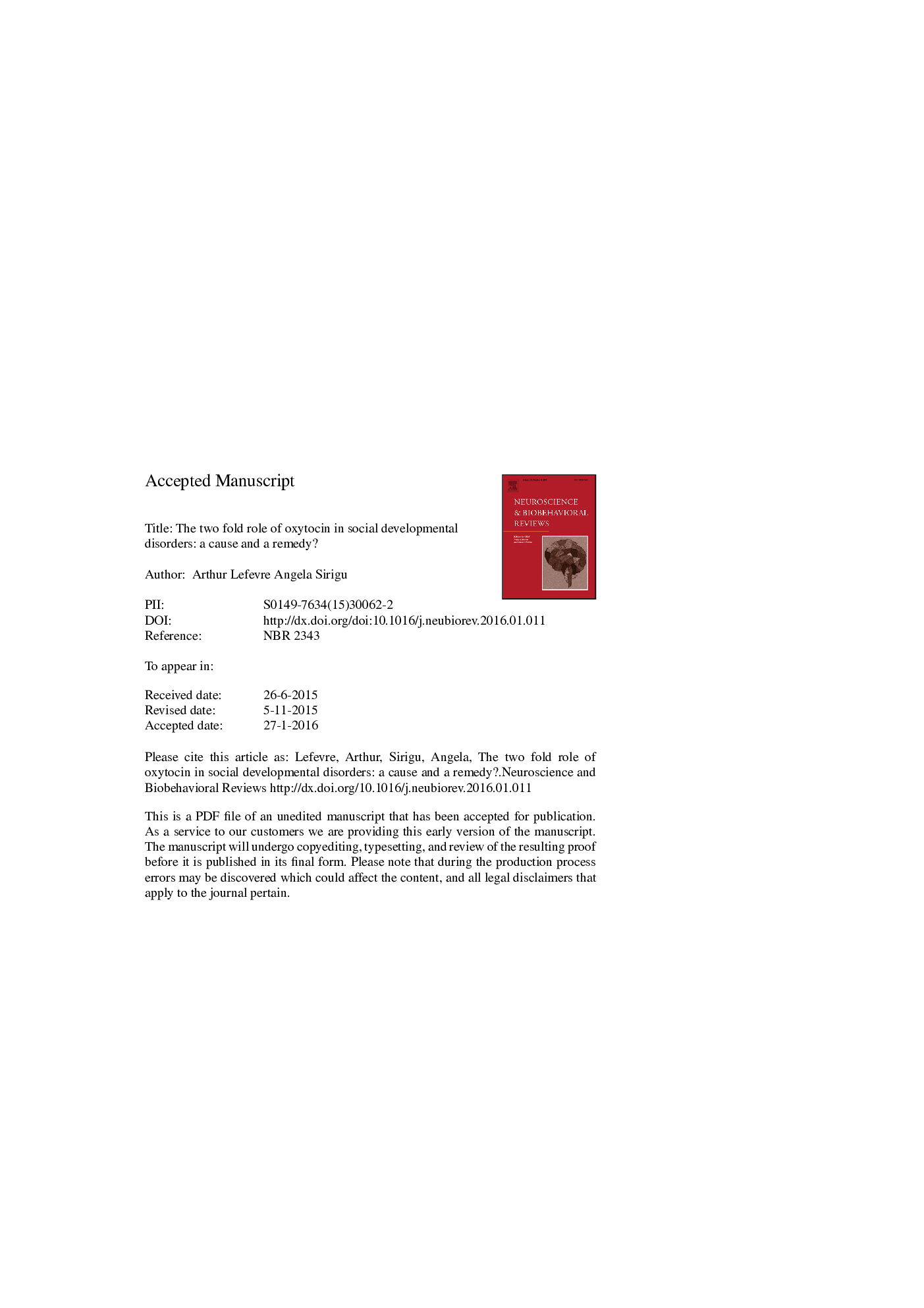| Article ID | Journal | Published Year | Pages | File Type |
|---|---|---|---|---|
| 7303014 | Neuroscience & Biobehavioral Reviews | 2016 | 32 Pages |
Abstract
Oxytocin is widely used by obstetricians to induce or facilitate labor. The long lasting consequences of oxytocin administration remain however unknown. Here, we discuss recent evidence suggesting a link between oxytocin labor induction and developmental social impairments such as autism spectrum disorders (ASD). Because these associations are methodologically questionable, we provide a review of animal studies investigating the long term effects of neonatal injection of oxytocin to shed light on the biological mechanisms that mediate the contribution of early oxytocin supplementation on the development of social impairments. In contrast to this potential negative impact on development, oxytocin has been shown to ameliorate social skills of ASD patients. However, results of chronic oxytocin administration from animal experiments are contradictory. We also review recent studies looking at chronic oxytocin effects in animal and in humans. Obstetric and psychiatric uses of exogenous oxytocin both impact on oxytocinergic neurotransmission but the effects may be sharply dissimilar.
Related Topics
Life Sciences
Neuroscience
Behavioral Neuroscience
Authors
Arthur Lefevre, Angela Sirigu,
